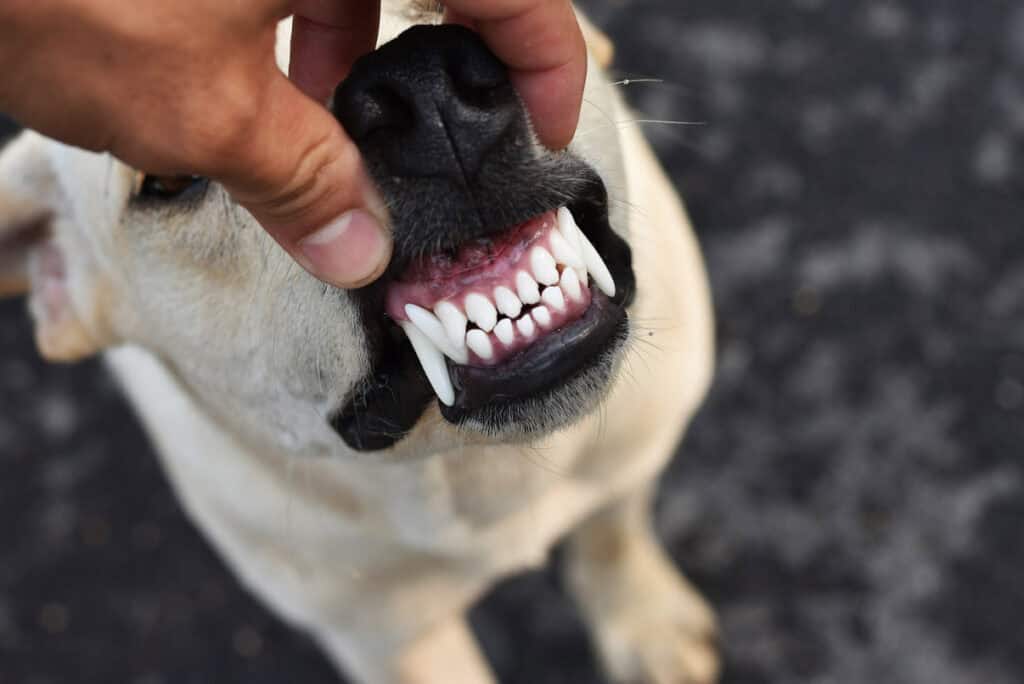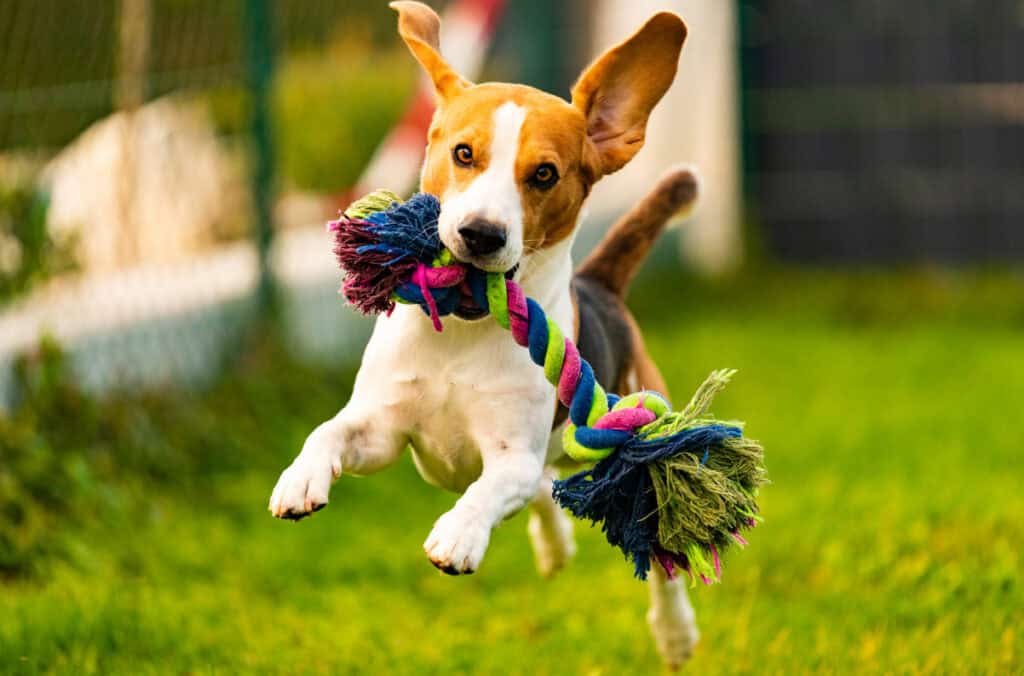Are you a dog owner? Would you like to check if your dog is healthy? It can be difficult to know how well your dog is doing with their health. Health problems are invisible. Unlike humans, dogs can’t verbalize and explain how they feel. If they’re in pain, they may show it in ways but also try to hide it.
Table of Contents
Depending on the individual dog and how their health is progressing, pinpointing if something is wrong can be tricky. Much of it is traced back to behaviour. Here are steps on how to check if your dog is healthy.

Check their breath.
Fresh breath and clean teeth are signs of health. Unfortunately, teeth issues – gingivitis or periodontitis – can affect organs and lead to more severe health issues. If your dog’s mouth smells rotten, it could mean tooth decay or more serious.

Check their ears.
Dogs should have clean ears. No waxy buildup. No discharge. No musky smell. While animal ears get dirty, ignoring dirty ears can cause ear infections. This can be a significant source of irritation for any dog.
Check their weight.
Excessive weight gain can be a sign of diabetes, heart disease, bone or joint diseases, skin conditions, and different types of cancer. If your dog has lost a lot of weight, this is also a sign that something is wrong.
Ideally, a dog should have a consistently lean weight that does not change over time. This may necessitate portion control, meal planning, and incorporating highly healthy dog treats and meal ingredients.
Check their appetite.
A healthy dog should have a healthy appetite and drink lots of water. A sudden change in eating or drinking is a warning sign that something is wrong. Eating more or less or consuming more or less is not always accompanied by weight changes, either.
Appetite must be looked at as a separate factor for dog owners. A total loss of appetite is worrisome and becomes an emergency if your dog has a fever, pain, vomiting, diarrhea, or weakness in the body.
Ensure the coat is clean and shiny.
A healthy dog will have a shiny, clean coat from natural oils. The average dog doesn’t need to be bathed routinely, and if it is washed regularly, it can cause skin irritation. A dog that’s licking, chewing, and scratching at its coat could mean skin irritation, skin allergies, or fleas.
Look at their behaviour toward others.
If your dog is usually kind to others but suddenly displays aggression in a way you’re not used to, it could be a sign of a health issue. Alternatively, it may not be aggression. A dog may be needy or clingy or want to be close to others in an unusual way.
Some dogs may lose personality if they’re sick or unwell. Their usual demeanour changes as they try to hide what they’re experiencing. They may be unwilling to engage in certain activities or not appear interested in anything enjoyable. They may totally withdraw.
Observe their alertness.
A dog that is alert and eager to spend time with you engaged in playtime, and watching and observing your actions is a healthy dog. Just as you look for negative signs, look for positive signs as well.
Check their bowel and bladder movements.
After having your dog for some time, you know what a healthy bowel movement is. It should be free of blood, mucus, worms, eggs, a chalky white colour, a black or tarry appearance, or a greasy coating.
This sort of appearance in a dog’s bowel movements may mean stress, allergies, parasites, a bacterial infection, a viral infection, pancreatitis, cancer, inflammatory bowel disease, colitis, or obstruction.
Dog urine should also be regular. Yellow is standard. When it’s dark or bright yellow, it could mean dehydration. Orange colour is a sign of jaundice, gallbladder problems, pancreatic problems, severe dehydration, liver diseases, or damaged blood cells. Any red, pink, or cloudy area is a sign of infection, cystitis, clotting, trauma, or cancer.
Consult a veterinarian about your dog.
If you suspect a severe problem with your dog, always take it to your veterinarian. They can perform a blood panel, fecal testing, urine analysis, and a physical inspection to determine whether there are any warning signs or evidence of a health problem.
Your dog needs an emergency vet visit if you notice the following symptoms. A rigid, distended abdomen. The inability to urinate. Excessive diarrhea or vomiting. Seizures, trouble breathing, and a lack of coordination or inability to stand are signs that your dog needs a vet as soon as possible. These are life-threatening signs.
In addition to regular vet care, incorporating Under The Weather Pet supplements can also support your dog’s overall health and wellness.

Watching how active they are.
A lively dog is usually healthy. These are positive signs if your dog is full of energy, loves to play, and is always ready for a walk. On the other hand, if you see a decline activity or if your dog seems tired and not interested in the things it usually loves, it could mean there’s a health issue.
Their activity might change because of pain, discomfort, or other hidden health problems. Pay attention to how much exercise your dog gets and how excited they are about it. If you notice any big changes, it’s time to talk to a vet.
Checking their eyes.
Healthy eyes should look bright and clear. Look for redness, discharge, or cloudiness in your dog’s eyes. These issues could signal an infection, injury, or other problems, like cataracts or glaucoma.
Your dog’s eye health is essential. If you see your dog squinting or rubbing its eyes, or if its eyes look dull or cause a lot of tearing, seek veterinary advice right away.



